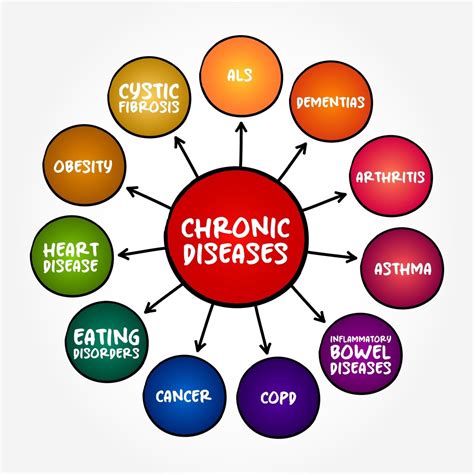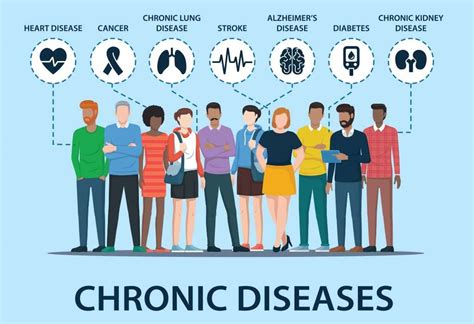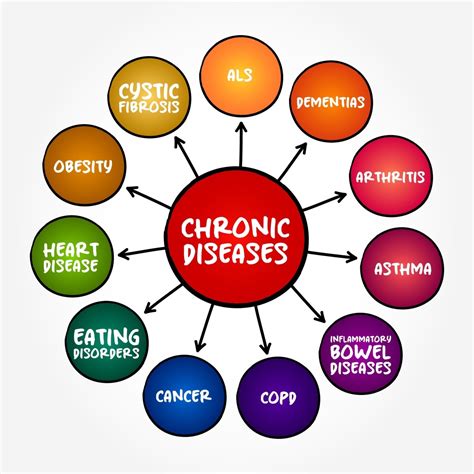Living with a chronic condition can feel overwhelming.
The constant juggling act of medications, appointments, and lifestyle adjustments can leave you drained. You yearn for a simpler way to manage your symptoms, reclaim your energy, and live life to the fullest.
What if mastering chronic condition management wasn’t a daunting uphill battle? Imagine feeling more in control, empowered, and confident in navigating your health journey.
This isn’t a fantasy.
Discover 7 simple, yet powerful hacks, backed by expert advice, to simplify your daily routine, optimize your well-being, and unlock a life beyond limitations.
7 Simple Hacks to Master Chronic Condition Management

Living with a chronic condition can feel like navigating a minefield. There are appointments, medications, lifestyle changes, and the ever-present worry about flare-ups. But fear not, fellow warriors! Mastering chronic condition management doesn’t have to be an uphill battle.
These seven simple hacks, backed by expert advice, can empower you to reclaim control, boost your well-being, and live a fuller, richer life, despite your diagnosis.
1. Become Your Own Healthcare Advocate

You are the expert on your own body. Don’t be afraid to ask questions, seek second opinions, and actively participate in your healthcare decisions.
- Keep a detailed journal: Track your symptoms, medications, treatments, and anything else you think might be relevant. This valuable resource can help you identify patterns, communicate effectively with your doctor, and advocate for your needs.
- Prepare for appointments: Write down your questions beforehand, bring your journal, and don’t hesitate to ask for clarification. Remember, it’s okay to ask “why” and “how” until you feel confident in your understanding.
- Build a strong support system: Connect with other people living with your condition. Online forums, support groups, and patient advocacy organizations can provide invaluable advice, emotional support, and a sense of community.
2. Embrace Mindfulness and Stress Management

Chronic conditions often amplify stress, which can exacerbate symptoms. Learning to manage stress is crucial for overall well-being.
- Practice mindfulness meditation: Even a few minutes of daily meditation can help calm your mind, reduce anxiety, and improve your ability to cope with challenges.
- Engage in relaxing activities: Find activities that bring you joy and help you unwind, such as yoga, reading, spending time in nature, listening to music, or taking warm baths.
- Prioritize sleep: Aim for 7-8 hours of quality sleep each night. Establish a relaxing bedtime routine, create a sleep-conducive environment, and avoid caffeine and alcohol before bed.
3. Fuel Your Body with Nourishment

What you eat plays a significant role in managing chronic conditions.
- Focus on whole, unprocessed foods: Fill your plate with fruits, vegetables, lean proteins, whole grains, and healthy fats. These nutrient-dense foods provide the building blocks your body needs to heal and thrive.
- Stay hydrated: Drink plenty of water throughout the day. Dehydration can worsen symptoms, so make it a habit to keep a water bottle handy.
- Limit processed foods, sugary drinks, and unhealthy fats: These foods can contribute to inflammation, weight gain, and other health problems.
4. Move Your Body, Feel the Difference

Regular physical activity is essential for managing chronic conditions, even if it’s just gentle movement.
- Find activities you enjoy: Walking, swimming, dancing, cycling, or gardening are all great options. Choose activities that fit your fitness level and don’t put excessive strain on your body.
- Start slowly and gradually increase intensity: Listen to your body and don’t overdo it. Even short bursts of activity can make a difference.
- Consult with your doctor: Before starting any new exercise program, it’s important to talk to your doctor, especially if you have any underlying health conditions.
5. Prioritize Self-Care

Taking care of your mental, emotional, and spiritual well-being is just as important as managing your physical health.
- Schedule time for yourself: Make time for activities that bring you joy, relaxation, and a sense of fulfillment.
- Practice gratitude: Take a moment each day to appreciate the good things in your life.
- Connect with loved ones: Spending time with supportive friends and family can boost your mood and provide a valuable emotional outlet.
6. Harness the Power of Technology

Technology can be a powerful tool for managing chronic conditions.
- Track your symptoms and medications: Utilize apps or online platforms to monitor your progress, identify patterns, and communicate with your healthcare providers.
- Connect with online support groups: Find communities of people living with similar conditions. Sharing experiences, advice, and encouragement can be incredibly helpful.
- Explore telehealth options: Telemedicine appointments can provide convenient access to healthcare, reducing the need for travel and missed work.
7. Celebrate Small Victories

Living with a chronic condition is a marathon, not a sprint.
- Acknowledge your progress: Celebrate milestones, no matter how small. Every step you take towards managing your condition is a victory.
- Practice self-compassion: Be kind to yourself. There will be good days and bad days. Don’t beat yourself up over setbacks.
- Focus on the positive: Shift your perspective and focus on the things you can control.
Remember, you are not alone. Millions of people live fulfilling lives despite chronic conditions. By implementing these simple hacks, you can empower yourself, manage your symptoms effectively, and live your best life.
FAQ
Q: What is considered a chronic condition?
A: Chronic conditions are long-term health problems that typically last at least three months, require ongoing medical attention, and often limit daily activities.
Q: Are these hacks a replacement for professional medical advice?
A: No, these hacks are not a substitute for guidance from your healthcare provider. Always consult with your doctor for diagnosis, treatment, and personalized advice.
Q: Can these hacks help with all types of chronic conditions?
A: While these hacks can be beneficial for many chronic conditions, their effectiveness may vary depending on the specific condition.
Q: How long will it take to see results from these hacks?
A: The time it takes to experience improvements can vary greatly from person to person and depends on the severity of the condition and individual lifestyle factors.
Q: What if I don’t have time for all of these hacks?
A: Start by incorporating one or two hacks that resonate most with you. Gradually add more as you become more comfortable.
Q: Are these hacks expensive to implement?
A: Many of these hacks require minimal to no additional financial investment. Focus on making sustainable lifestyle changes that fit your budget.
Q: Can I do these hacks on my own, or do I need support?
A: While these hacks are designed for individual implementation, seeking support from friends, family, or support groups can enhance your success.



